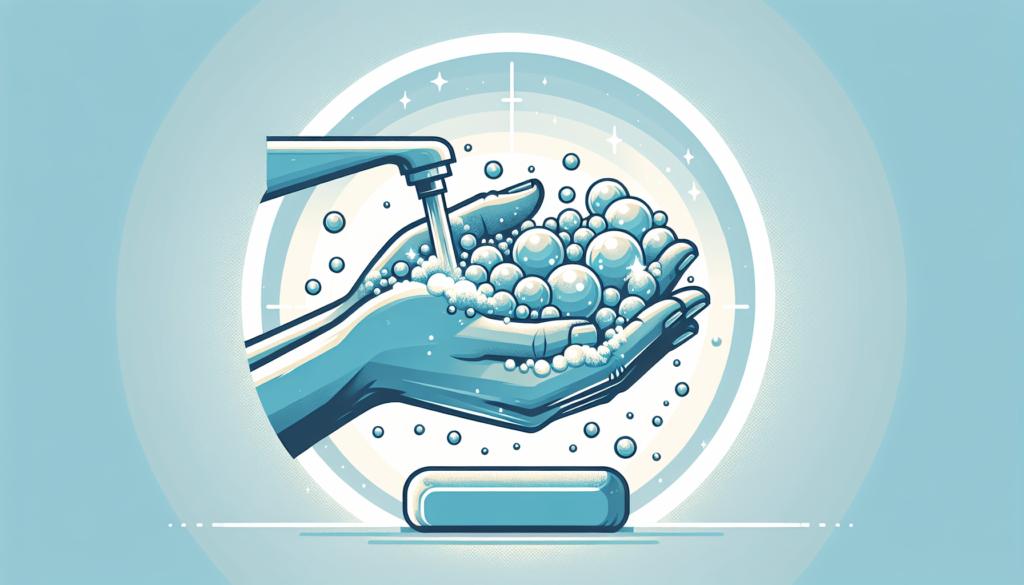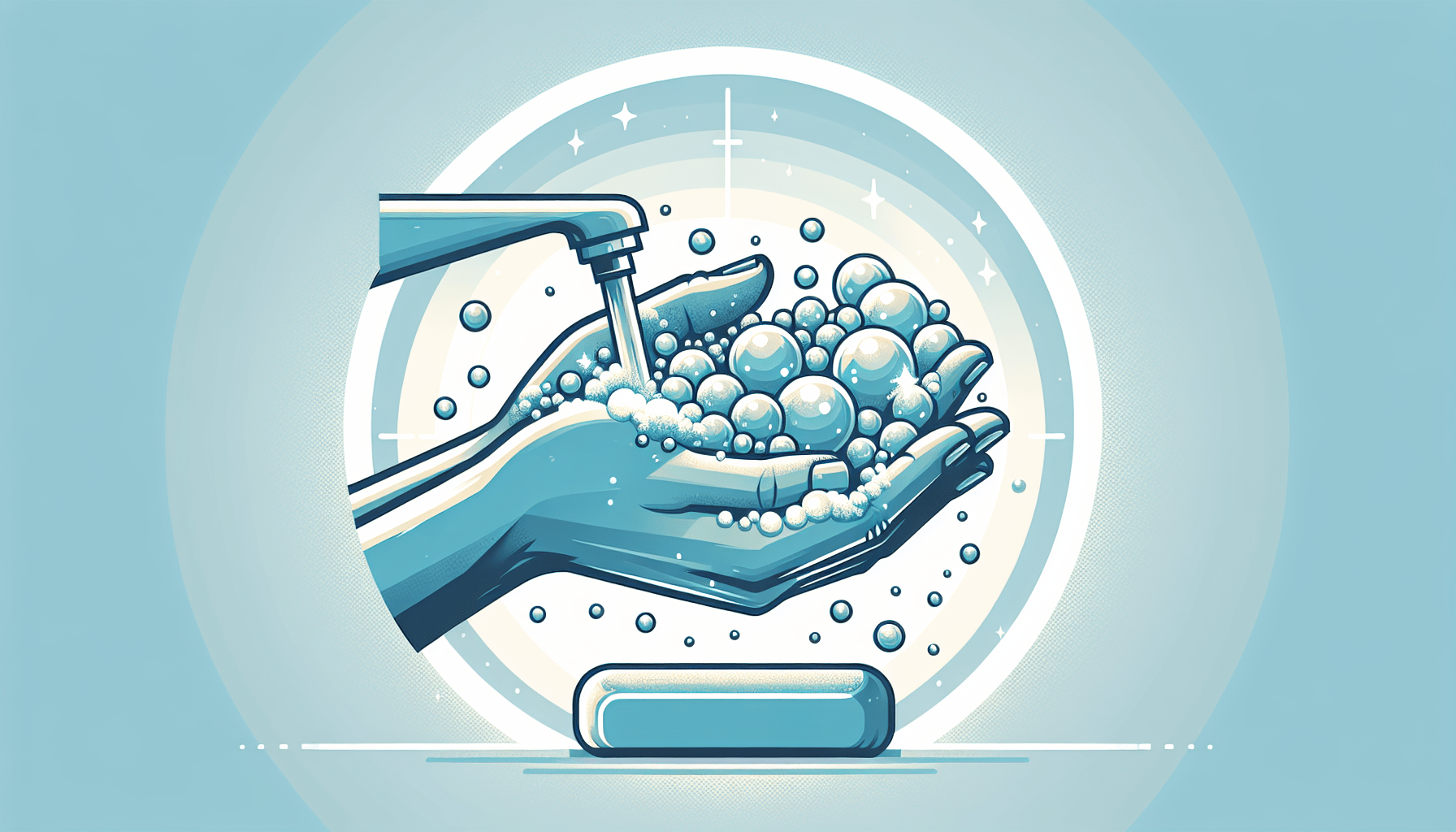In a world where staying healthy is more important than ever, it’s essential to incorporate simple yet effective strategies into your daily routine. “Best Practices for disease prevention in Everyday Life” will guide you through practical steps to safeguard your well-being. From proper hand hygiene to mindful personal habits, you’ll discover valuable tips to keep illness at bay and ensure a healthier future. Embark on this journey to transform your everyday habits and embrace a life of health and vitality. Have you ever wondered about the simple steps you can take to protect yourself from common illnesses? Disease prevention might seem like a daunting topic, but in reality, it’s all about integrating smart and sustainable practices into your daily routine. With a little bit of knowledge and some consistency, you can significantly reduce your risk of falling sick.

Introduction
In today’s fast-paced world, staying healthy is more important than ever. With exposure to various germs and pathogens at almost every turn, understanding the best practices for disease prevention is essential. Whether you’re at home, at work, or on the go, there are several measures you can adopt to maintain your health. This article explores practical steps you can incorporate into your everyday life to avoid illnesses and keep yourself and your loved ones safe.
Understanding Disease Prevention
Before diving into specific practices, it’s essential to understand what disease prevention entails. Simply put, disease prevention involves measures taken to prevent illnesses rather than treating them after they occur. The focus is on reducing risk factors and enhancing protective factors that keep diseases at bay.
Types of Disease Prevention
There are three distinct levels of disease prevention:
- Primary Prevention: This level aims to prevent diseases before they occur. Measures include vaccinations, adopting a healthy lifestyle, and avoiding exposure to harmful substances.
- Secondary Prevention: This level focuses on early detection and intervention. Screening tests and regular check-ups are crucial parts of secondary prevention.
- Tertiary Prevention: This level is about managing and minimizing disease effects once it’s already present. It includes rehabilitation programs and management strategies for chronic illnesses.
Personal Hygiene
Personal hygiene is one of the most effective ways to prevent disease. It’s all about keeping your body and surroundings clean to avoid germs and infections.
Handwashing
According to health experts, handwashing is the single most important method to prevent the spread of illnesses. Here’s how you can do it effectively:
- Wet your hands with clean, running water (warm or cold), turn off the tap, and apply soap.
- Lather your hands by rubbing them together with the soap. Be sure to lather the backs of your hands, between your fingers, and under your nails.
- Scrub your hands for at least 20 seconds. Need a timer? Hum the “Happy Birthday” song from beginning to end twice.
- Rinse your hands well under clean, running water.
Respiratory Hygiene
Covering your mouth and nose when coughing or sneezing is critical. Use a tissue or the inside of your elbow, dispose of tissues properly, and wash your hands immediately to prevent the spread of respiratory infections like the common cold or flu.
Vaccinations
Vaccinations are a paramount element of primary disease prevention. They protect you from many serious and potentially deadly diseases by building your immunity.
Why Vaccines Are Important
Vaccines work by introducing a small, safe amount of a pathogen to your body, encouraging your immune system to develop a defense against it. Vaccination not only protects you but also helps in creating herd immunity, which protects those who are unable to get vaccinated due to medical reasons.
Common Vaccines
Here are some of the essential vaccines recommended for various age groups:
| Age Group | Recommended Vaccines |
|---|---|
| Infants and Children | Hepatitis B, MMR (Measles, Mumps, Rubella), DTaP (Diphtheria, Tetanus, Pertussis), Polio, Varicella (Chickenpox) |
| Adolescents | Meningococcal, HPV (Human Papillomavirus), Tdap (Tetanus, Diphtheria, Pertussis) |
| Adults | Flu, Td/Tdap (Tetanus, Diphtheria, Pertussis), Shingles, Pneumococcal |
Nutrition and Hydration
Proper diet and hydration are the bedrock of good health. They provide the nutrients necessary for the body’s immune system to function optimally.
Balanced Diet
A balanced diet is composed of various food groups in the right proportions. Here’s a simple guideline:
| Food Group | Examples | Portion |
|---|---|---|
| Fruits | Apples, Bananas, Berries | 2-4 servings per day |
| Vegetables | Broccoli, Spinach, Carrots | 3-5 servings per day |
| Proteins | Chicken, Fish, Beans, Nuts | 2-3 servings per day |
| Grains | Whole Wheat Bread, Brown Rice | 6-11 servings per day |
| Dairy | Milk, Yogurt, Cheese | 2-3 servings per day |
Staying Hydrated
Adequate hydration is crucial for bodily functions. It’s recommended to drink at least eight 8-ounce glasses of water a day. This can vary based on activity level, climate, and individual needs.
Physical Activity
To boost your immune system, regular physical activity is non-negotiable. Exercise increases blood circulation, helps maintain a healthy weight, and promotes better sleep—all of which are vital for disease prevention.
Types of Exercise
- Aerobic exercise: Activities like walking, jogging, and swimming that increase your heart rate.
- Strength training: Lifting weights or activities such as push-ups that build muscle strength.
- Flexibility exercises: Stretching or yoga that improve your range of motion.

Rest and Stress Management
Inadequate sleep and chronic stress can weaken your immune system, making you more susceptible to illnesses.
Sleep Hygiene
Good sleep hygiene practices include:
- Maintain a regular sleep schedule by going to bed and waking up at the same time every day.
- Create a comfortable sleep environment with a proper mattress and a dark, quiet room.
- Avoid screen time at least an hour before bed to regulate your sleep-wake cycle.
Stress Management
Stress can take a toll on your health, both mentally and physically. Effective stress management techniques include:
- Mindfulness and Meditation: Practicing mindfulness or meditation can help manage stress.
- Exercise: Physical activity is an excellent way to combat stress.
- Social Support: Talking to friends or family can provide comfort and ease stress.
Clean Environment
Keeping your living and working environments clean is another crucial aspect to prevent diseases. Regular cleaning reduces the buildup of germs and allergens, thus reducing the likelihood of infections.
Home Hygiene
- Kitchen: Clean countertops, utensils, and appliances regularly. Separate raw and cooked foods to prevent cross-contamination.
- Bathroom: Regularly disinfect surfaces like sinks, toilets, and showers.
- Laundry: Wash bedding, towels, and clothes frequently to avoid the accumulation of bacteria.
Workplace Hygiene
- Desks and Computers: Wipe down your desk and computer equipment regularly.
- Shared Spaces: Disinfect shared spaces like conference rooms and break areas to minimize germ transmission.
Avoiding Harmful Habits
Certain lifestyle choices can have a significant impact on your health. Avoiding harmful habits like smoking and excessive alcohol consumption can go a long way in disease prevention.
Smoking
Smoking damages your lungs and impairs your immune system, making you more susceptible to infections like pneumonia. Quitting smoking can significantly improve your overall health.
Alcohol
Excessive alcohol consumption can weaken your immune system and make you more prone to diseases. Moderation is key—adults should limit alcohol intake to one drink per day for women and two for men.
Regular Medical Check-ups
Routine medical check-ups are an essential part of secondary disease prevention. They help in early detection of potential health issues, enabling timely intervention and treatment.
Screenings
Regular screenings for conditions like high blood pressure, diabetes, and various cancers can be life-saving. Consult your healthcare provider to understand which screenings are appropriate for your age and risk factors.
Mental Health
Your mental well-being has a direct influence on your physical health. Addressing mental health issues like anxiety and depression can improve your overall immune function and reduce the risk of disease.
Techniques to Support Mental Health
- Therapy or Counseling: Seeing a mental health professional can offer guidance and support.
- Healthy Relationships: Building and maintaining healthy relationships with friends and family.
- Self-Care: Taking time for activities that you enjoy and that help you relax.
Travel Precautions
Traveling can expose you to new germs and environments. Being mindful of hygiene and health guidelines can prevent illness during your trips.
Before You Travel
- Vaccinations: Ensure you’re up-to-date with the necessary vaccinations for your destination.
- Health Checks: Get a pre-travel health check-up to ensure you’re fit for travel.
During Travel
- Hand Hygiene: Regularly wash your hands or use hand sanitizer.
- Food and Water Safety: Avoid consuming food and water from unreliable sources.
Conclusion
Disease prevention doesn’t have to be complicated. By integrating these best practices into your daily routine, you can effectively reduce your risk of falling sick. Remember, it’s about making informed, healthy choices consistently.
Your health is your greatest asset. Taking proactive steps to safeguard it is one of the most important investments you can make. Be diligent, stay informed, and most importantly, prioritize your well-being.

1 thought on “Best Practices For Disease Prevention In Everyday Life”